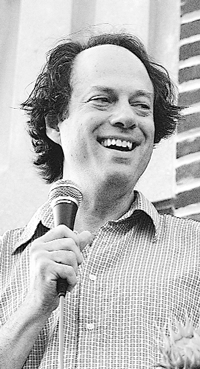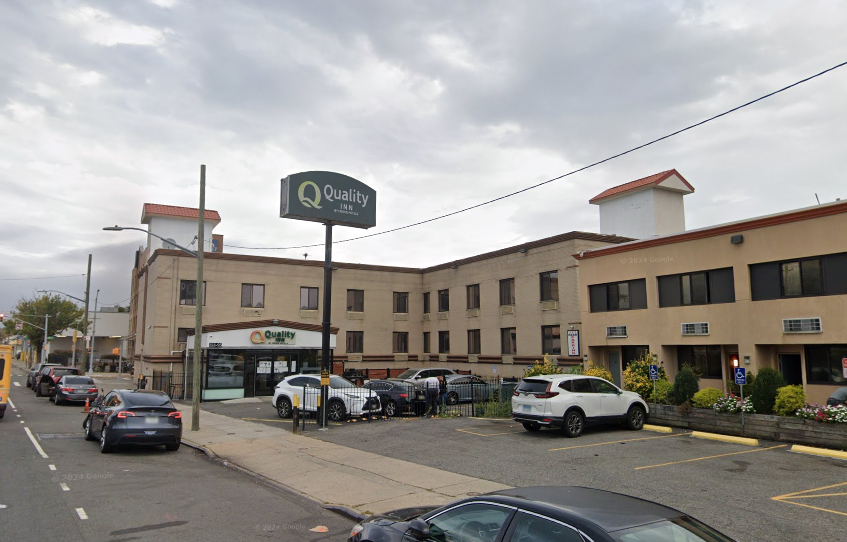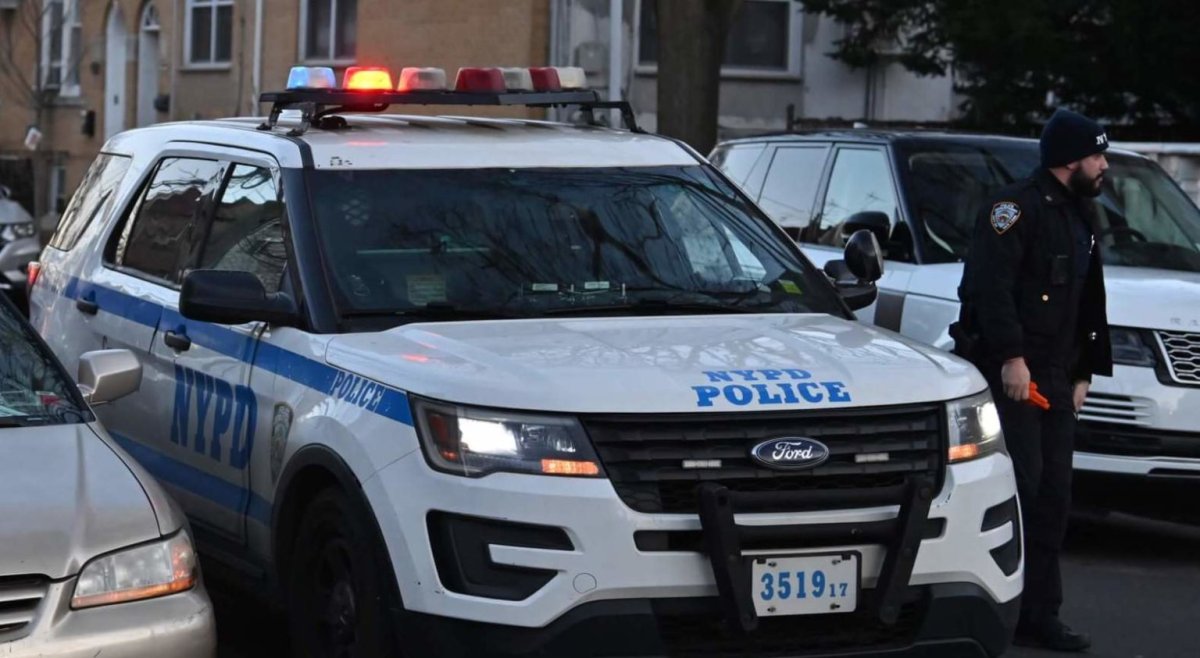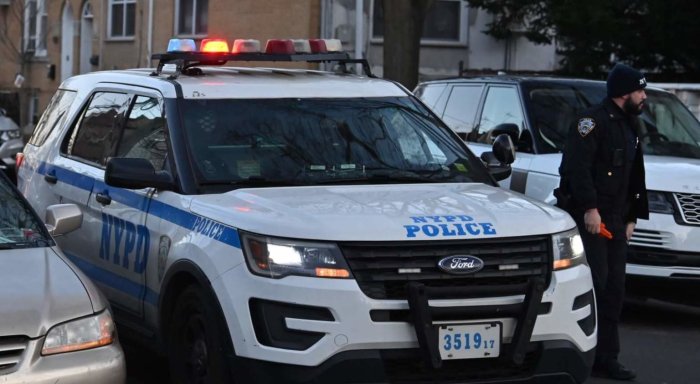By Lincoln Anderson
<<Villager file photo
Phil Hartman, founder of the HOWL! Festival
“I saw the best minds of my generation destroyed by madness, starving hysterical naked….” wrote Allen Ginsberg in the opening line of “Howl.”
With the recent announcement that the HOWL! Festival of East Village Arts will be on hiatus till next summer, some think the festival has been “destroyed” by mismanagement — while “hysterical” e-mails and criticism from within its own ranks haven’t helped much, either.
But its leaders assure the fest and its umbrella organization, the Federation of East Village Artists, are merely regrouping and will reemerge healthy and that — eventually — the show will go on.
The spirit of the late East Village poet and his Beat anthem were the inspiration for HOWL!, which, this summer, was to see its fourth annual installment. Produced on an ambitiously grand scale, past festivals saw more than 200 events each year. Venues included performance spaces and community gardens all over the East Village, as well as Tompkins Square Park — where the over-the-top dragfest Wigstock, art extravaganza Art Around the Park, poetry readings and jazz and folk concerts held center stage.
HOWL!’s Web site still lists the dates of this year’s now cancelled weeklong festival.
However, at the FEVA office calls are fielded by an answering machine that announces: “The HOWL! Festival, currently scheduled for Sept. 8 to 16, 2006, will be postponed until September 2007. Due to the growing size of the festival and the substantial cost associated with it, we’ve decided to move the festival to next year….”
FEVA’s E. Sixth St. office has been closed to reduce — if not completely eliminate — overhead. Its executive director and program director are currently doing other things and the rest of the office staff are gone.
After three years of being the principal financer of HOWL!, Phil Hartman, founder of both HOWL! and FEVA, decided he would step back after last year’s festival. Hartman stepped down as FEVA’s executive director, and Joseph Pupello was hired to head a new fundraising effort.
At the time, Hartman said he’d been planning for sometime to take a reduced role; but some within FEVA complained there had been “too much Phil” in the festival, and that it was time to open things up to others’ input. Hartman also came under fire from some critics for what they claimed was mismanagement of finances and for the fact that the organization, after three years, still had not been established as a 501-c-3 nonprofit corporation. Not helping matters, a major FEVA fundraising benefit at Capitale on the Bowery ended up losing money, about $50,000, according to one source.
With Hartman on the sidelines this year, fundraising proved a challenge, and within the last two weeks the decision was made to call off HOWL! ’06.
Despite the last-minute cancellation, Pupello, currently working part time at La MaMa Theater doing development and external affairs, remained upbeat about the future of FEVA and HOWL!
“HOWL!’s not happening this year — which is a good thing,” Pupello said. “We went from a single funder to really having to diversify our funding. Fundraising — it takes time to develop and build relationships. It’s been going well, but we just felt we weren’t there yet. We were close, but not close enough. We all felt the most prudent thing to do was to postpone it and to come back next year. We want to have a really good, well-funded, blowout festival for next year.”
FEVA officially incorporated as a 501-c-3 nonprofit a couple of months ago, according to Hartman. Pupello added that becoming a nonprofit, in turn, involves “building another set of relationships.”
“It just needs time,” Pupello said of FEVA and HOWL! “The whole model has changed…. We’re fundraising toward an end product, and it’s a monster end product. We spent a lot of time reorganizing the corporation. Now we’ll focus on the program…. I’m 10 times more excited now than I was six months ago.”
Less Phil, no festival
Hartman remains on FEVA’s board and is involved in an advisory capacity. He said he agreed with the decision to postpone the festival.
“It’s not the worst thing in the world to take a year off,” he said. “A lot of festivals take a year off and come back stronger.”
As for the criticism by some dissidents that there was previously “too much Phil” in HOWL!, Hartman replied, “Well there was less Phil [this year] — and you see what’s happened.”
Although Hartman didn’t want to say how much of his own money he put into the festival, others who donated funds said the amount was several hundred thousand dollars. Now, he says, he needs to return to focusing on his chain of nine Two Boots pizza restaurants.
“I’ve been the principal supporter of it,” Hartman said of HOWL! “It’s been very difficult to make it financially viable. It’s different, countercultural — it’s hard to get sponsors. And it’s an entirely free festival.
“For three years, I was totally obsessed and invested in it. After the last festival, I had to pull back and devote my attention to Two Boots…. I haven’t had my hand in it,” Hartman said of the planning for this year’s aborted event. “I have really tried to bow out and pass responsibility to those guys [Pupello and Greg Fuchs, the program director]. What has happened has very little to do with me…. We’ll see what happens next year.”
FEVA’s board will meet in a few weeks.
“There are still a few debts that we have to clean up,” Hartman noted. “The FEVA office is closed for the moment pending our board meeting.”
Last fall, Hartman came under attack, mainly from a barrage of e-mails from three outspoken critics within FEVA — documentarian and gallery owner Clayton Patterson and performance artists David Leslie and Penny Arcade. The self-dubbed “Terrible Three” said FEVA and the festival needed to be put more firmly in the hands of the artists themselves and that the organization lacked financial transparency.
Capitale offense?
The Capitale fundraiser became a focus. The event ran over cost, and donated money earmarked for the fundraiser went to pay off a loan Hartman incurred from his financing of FEVA.
An initial donation of $52,500 for the benefit was made by two members of the East Village Community Coalition, $50,000 from Aaron Sosnick and $2,500 from Michael Rosen. Subsequently, Rosen says, either Hartman or Leslie — the latter who organized the Capitale benefit — asked them for more money for the gala. Rosen and three other E.V.C.C. members worked out a $40,000 loan, which they are certain was used to pay for the benefit, since these four members got the bills. This loan was eventually paid back by Hartman.
“It was not the easiest to get repaid — but it was repaid in full,” Rosen said.
However, the earlier donation, they suspect, was used by Hartman to pay off debts and loans.
“I’m pretty sure some of the money was used to repay Phil Hartman for the money he had put into it,” said Rosen. “But we were never told that.”
Ultimately, though, Rosen doesn’t hold anything against Hartman, feeling the festival was a great thing for the neighborhood.
“It doesn’t really matter where it went,” he said of the money. “I really believe that Phil, like people say, lost hundreds of thousands of dollars on FEVA. Things were done that shouldn’t have been done. But the community is more important than this.”
As for the fate of the $52,500, Hartman says, “It was [for] a loan I made that had to be repaid. It went to operational expenses and repayment of the debt. Since that loan’s been paid, I donated more than $200,000 [to FEVA and HOWL!], more than I can tell you,” he said. “This was a year and a half ago,” he added.
Asked how much of his own cash he sunk into the festival over the full three years, he declined to comment, other that to say it was a lot.
As for why he was willing to personally finance the festival, Hartman said, “I believed in it — and I loved the East Village arts community. I still do.” He said he’d hoped that “other people” would come forward and that eventually the city too would help share the load. “That’s what happens in other cities,” he noted.
As for the delay in achieving 501-c-3 status, Hartman admitted it took awhile. But he said it’s common for startup organizations to use the 501-c-3 status of other nonprofits at first, which is what FEVA did; FEVA operated through the nonprofit status of the Lower Eastside Girls Club, as well as that of the Allen Ginsberg Trust. The only thing that was unusual, he said, was that it took too long for FEVA to incorporate as a nonprofit itself.
Vision was neat
David McWater, chairperson of Community Board 3, donated money to HOWL! for the first two years, though said he’d prefer to keep the amount private.
“I’m saddened by it,” he said of HOWL!’s being mothballed. “I don’t think it’s dead forever. Maybe it’ll come back, but in a different version. Phil had a vision — and definitely he was right about it. He had a great idea. We all love it. It was kind of neat to have our own neighborhood festival. I think if people really like the event, let’s make sure it happens. I’m sure Phil made mistakes — but I don’t think there’s any point on focusing on that now. Let’s put the focus on making it better.”
Tom Birchard, owner of Veselka restaurant on Second Ave., joined the FEVA board fairly recently. He also donated funds to the festival, wanting to promote the idea of the East Village as a cradle of the arts and to preserve the spirit of Ginsberg. Reached on Monday, he said he was unaware the festival had even been called off. (FEVA planned to issue a press release on Tuesday.)
“I came to this very late. I got on the board last February or March,” Birchard said. “I went to a few board meetings. I just got the idea the whole thing had fallen apart. I feel bad about the whole thing.”
Some of the FEVA artists have been firing angry e-mails Birchard’s way.
“I was invited to come in on the cleanup crew,” he said, “and some artists are holding me responsible for what happened.”
Birchard also said he feels Hartman didn’t do anything unlawful by any means.
“My understanding, Phil Hartman gave the vast, vast majority of money,” he said. “Other people put in a little. There was certainly mismanagement — but there was no out-and-out fraud. I would never be involved in that.”
Management wasn’t so neat
Bob Perl, president of Tower Brokerage, an East Village real estate development company, and a leading FEVA board member, also gave money to the festival each year. He said HOWL! and FEVA may just be going through some tough growing pains that are natural.
“It’s called ‘founder’s syndrome,’ somebody told me,” Perl said. “It happens all the time. This is probably a classic example. Phil had his hands all over this. Phil’s strength isn’t in management. He’s a visionary. He brought a lot of disparate forces in this neighborhood together. The artists are still here and the art will still come out — and maybe HOWL! will rise again.” Perl admitted Pupello wasn’t successful at fundraising, but added he “inherited a lot of baggage and financial issues” that hampered him.
Although HOWL! has been FEVA’s main focus, the federation has also had other goals, including creating artists’ housing. Members have also expressed desire for a health plan. And FEVA has explored some real estate ventures, including partnering with the Lower Eastside Girls Club to create artists’ studios in the girls’ Avenue D clubhouse project and developing part of the Essex St. Market into a theater complex financed by a new 12-story residential tower.
Perl said the girls club plan is kaput.
“Working with the girls club is not how you make money — it’s not going to happen,” he said.
The Essex St. arts hub, Perl said, could be a “legacy project” for FEVA, but wouldn’t be easy. The site, between Stanton and Rivington Sts., has been tied up in litigation with a tenant fighting eviction by the city.
As for health coverage, Pupello said that instead of offering a plan of its own, FEVA would try to steer artists to the best options. Gouverneur Hospital, for example, he said, is “really working hard to be the health provider for the artist community of the Lower East Side.”
Most of all, Pupello said, “What we found in the last year is that artists are really looking for support for their work.” He said a goal of FEVA’s will be to try to work with the local businesses community to get them to support local artists.
Artists are restless
With FEVA at a transitional period, artists who complain they haven’t been involved enough in the decision-making, feel they now have a chance to gain more control over the organization set up to represent them, assuming it can be resuscitated. Earlier this year, the artists contributed to a lengthy list of grievances, which was compiled by journalist Cynthia Carr. Among their complaints, they charge they were treated like “an exploited work force,” working for free as performers, volunteers and techies during the HOWL! Festival. Another complaint: FEVA focuses too much on HOWL! and not enough on the rest of its mission statement of helping local artists. And they’re disappointed that FEVA’s Artists Advisory Board was disbanded under Pupello.
“We want to get FEVA back to the artists and to continue what we all wanted FEVA to be,” said Arcade in an e-mail, “a place that ensured that the multigenerational nature of the E.V./L.E.S. art scene would continue for both the artists and the art lovers who have long supported the arts in our neighborhood. Also, the issue of artists housing seems to have been co-opted. I hope to work on this issue in the fall when I get back to NY from [vacation in] Italy.”
“The question is not did we want to kill HOWL!/FEVA,” e-mailed Patterson. “That answer of course was no… No… No…NO!!! We were trying to save the organization. Clean out the stupidity. All we wanted was the organization to be legitimate…stick to the [FEVA] mission statement…trim the events and have people work out of home for awhile…get rid of the office…do not hire a $70,000 guy [Pupello]…and keep it local and keep it real…we loved all the ideas, hopes and dreams that we had been sold. The dreams were turning into lies…and all of the people surrounding Phil knew of the problems.”
In the absence of HOWL!, Patterson is thinking of doing a sort of minifestival later this summer.
“Something will be taking its place,” he said regarding the — at least temporarily — defunct festival. “I can’t really let it out of the bag at this point. It’s going to be about keeping it local and keeping it real.”
Hartman graciously shrugs off the criticism of him that peaked last fall as “well meaning.”
As for the often shrill struggle for control of FEVA and HOWL!, he said, “That’s just classic East Village politics.”


































